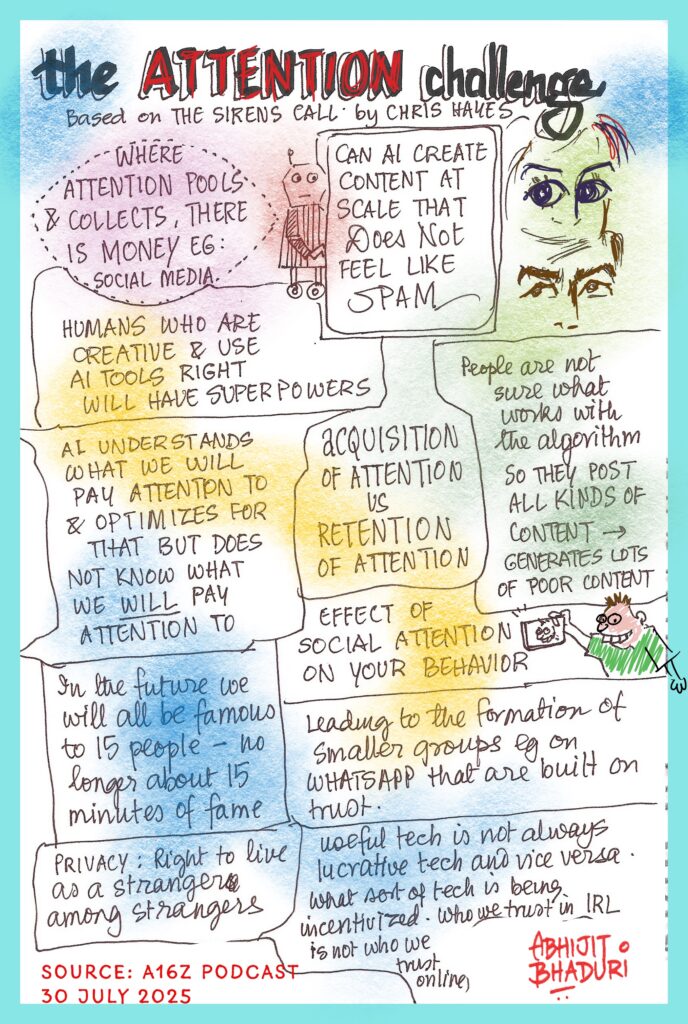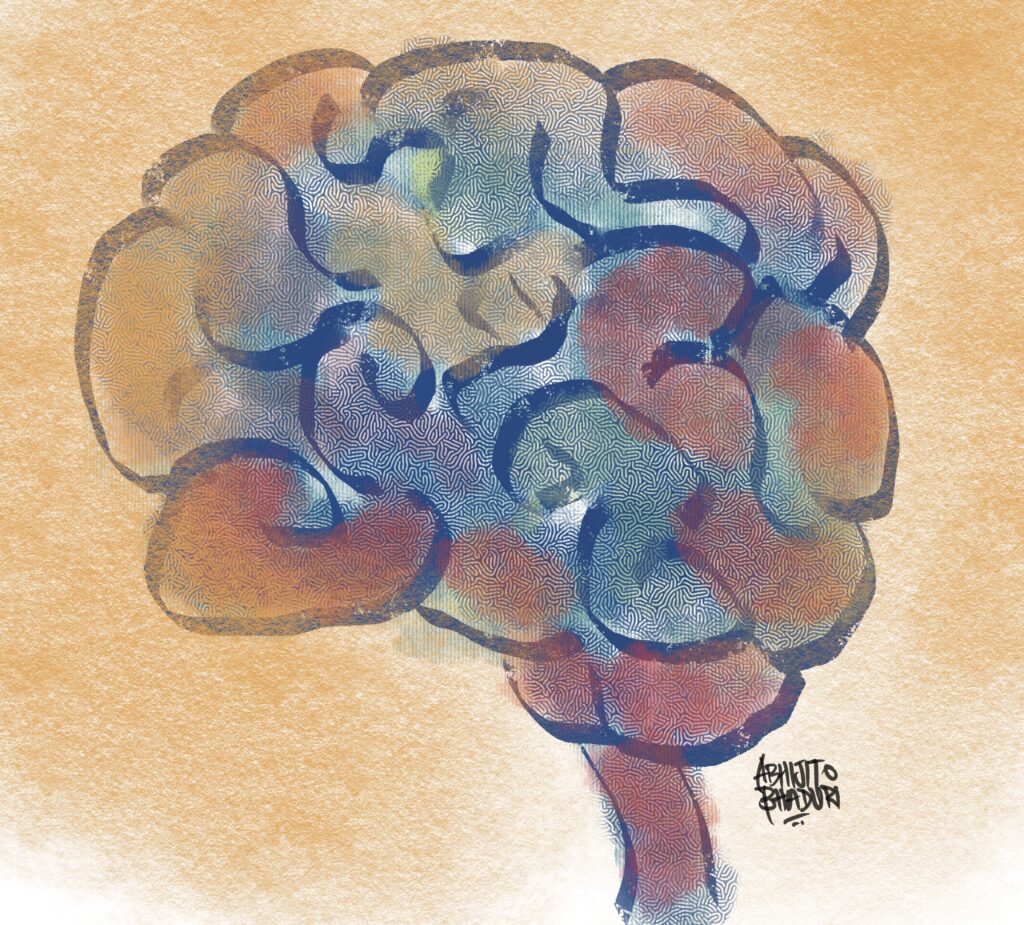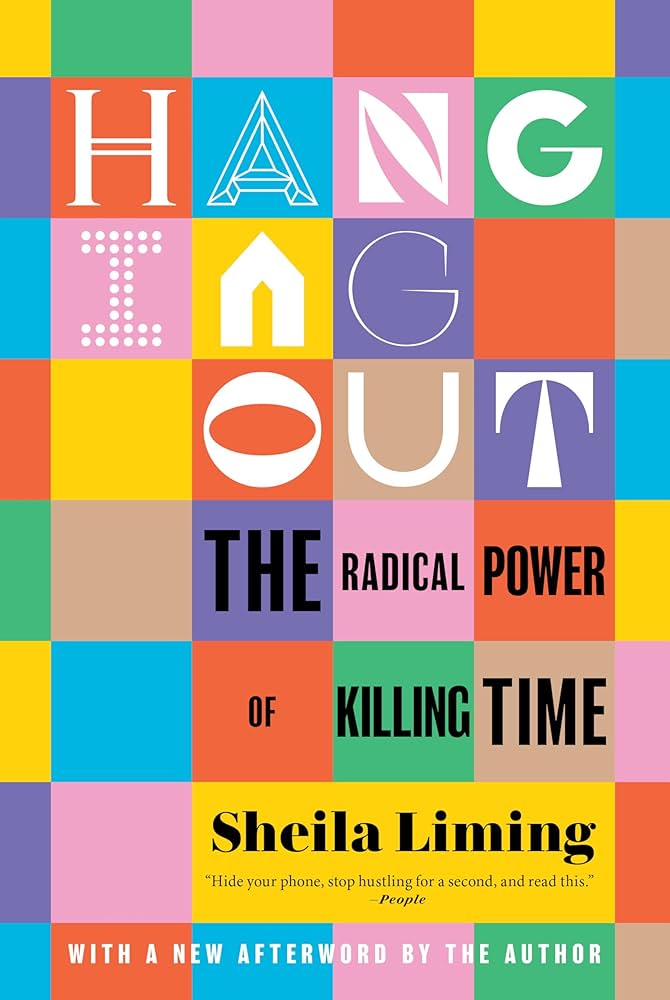
You know how sirens in mythology lured sailors to their doom with irresistible songs? So how did they escape the temptation of the sirens call? They sealed their ears with wax and tied themselves to the poles on the ship. That is how tough it was for Odysseus, according to mythology. Today’s “sirens” are apps, notifications, ads, and content streams that constantly pull at your attention. Hayes says we’re all Odysseus now—trying not to crash into the rocks, but endlessly tempted.
Attention isn’t just something you give—it’s something being taken from you, often against your will.

Attention Is the New Oil
In the 20th century, oil and labor powered the economy. In the 21st, attention does. Companies aren’t just selling products—they’re competing for your eyes, ears, and scrolling fingers. Your attention is the most valuable and limited resource in the world right now.
You may think you pay attention to what is important, actually what you pay attention to becomes important. It occpies your mindspace. That in turn shapes the modern economy and politics. So your attention matters to everyone – even me.
Involuntary vs. Voluntary Attention

Your brain has two attention modes:
- Voluntary: When you choose to focus (like reading this).
- Involuntary: When something grabs you without your permission (like TikTok auto-play or sirens).
Hayes says most tech is designed to hijack the involuntary kind—because it’s easier and more profitable. You’re not losing focus because you’re weak—it’s because the system is built to steal your focus.
What we need is human connection – not likes on social media
Humans need attention like plants need sunlight. Not just likes, but deep recognition—being seen. Social media offers a fake version of that. You might get 1,000 likes and still feel invisible.
What you really want isn’t likes. It’s to matter—to someone who really knows you.
We’re surrounded by infinite entertainment, but it often leaves us anxious, empty, or distracted. Hayes compares it to eating junk food—addictive and unsatisfying. The more you consume, the more you crave.
Infinite scrolling doesn’t fill the void—it creates it.
Don’t Confuse Fame with Fulfillment
From TikTokers to Elon Musk, people chase attention hoping it’ll make them feel whole. It doesn’t. The deeper need is recognition: to be known and valued by people who actually know us.
Fame is attention without intimacy. It’s a loud room where nobody sees the real you.
Social Media is Like a Slot Machine
You keep pulling to see what you’ll get next—more likes, more posts, more dopamine. It’s designed to be addictive. You never feel “done.” Hayes calls it the “slot machine model” of attention.
Your feed is a casino. Don’t let it gamble with your brain.
Feeling distracted, tired, or restless isn’t a personal failure—it’s a completely reasonable reaction to a world that is designed to overload your brain. You’re not lazy. You’re being exploited.
This book is a wake-up call to protect your mind like it’s your most valuable asset—because it is. Reclaim your attention, spend it on things that matter, and don’t settle for the illusion of connection when the real thing is still out there.
Here is a chat with Chris Hayes that I enjoyed listening to. Some things you may want to listen for:
- Acquiring attention is different from retaining attention
- In future we will all be famous for 15 people. So forget about getting 15 minutes of fame. That is old hat.
- AI will generate content that gets your attention – much like a siren. For getting content that you want, we will move to smaller groups on platforms like WhatsApp, Telegram etc. You wll be happy to pay for this.



